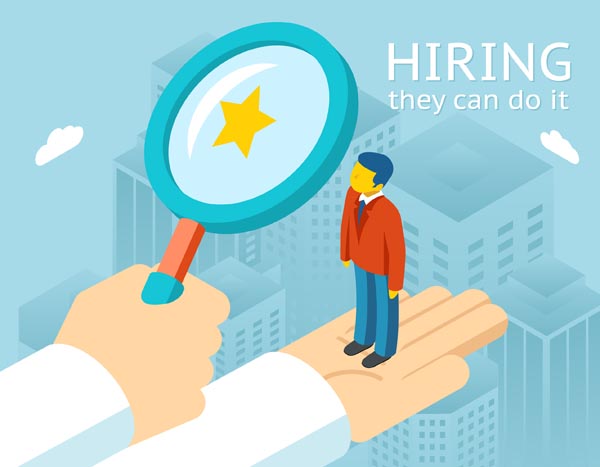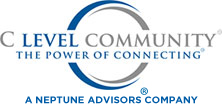
No Greatness Without Goodness – 2014 Fast Company’s 10 Books You Need To Read this Year.
Nearly 70% of individuals with disabilities and 95% of people with severe cognitive disabilities such as autism will never hold down a job. The reason is that no matter what they do and how well they do it, we employers rarely give them a chance.
Hiring people with disabilities confirms:
- People with disabilities perform their job just as well as other workers.
- May need some accommodations, but are high performing.
- Are absent less.
- Do not have a high turnover rate.
- Work more safely resulting in lower workman’s comp costs.
After watching the world through the eyes of his own child with autism, Randy believed that people with disabilities could do more. He pioneered a disability employment model in Walgreens distribution centers that resulted in 10% of its workforce consisting of people with disabilities. (1000+People With Disabilities) Walgreens new goal is 20% of its workforce. It is now the “gold standard of disability hiring.”
The Walgreens success serves as a model for other small and large employers in the US and abroad including Best Buy, Lowes and P&G.
Walgreen employees with disabilities are part of an inclusive workforce. They are paid the same pay, same benefits, and held to the same standards as any other employee.
In his book, No Greatness Without Goodness, Randy shares with us the principals for successfully hiring people with disabilities.
16 Principals for hiring people with disabilities:
- Have a Champion: No champion, no success.
- Set a goal and monitor progress relentlessly and conspicuously: “What get’s measured get’s done.”
- Go big: Create a clear and elevating goal.
- Have a bias for action, not planning: Do not spend much time with what-ifs.
- Don’t underestimate the abilities of employees with special needs: Talent and disabilities go in the same sentence.
- Apply the same performance standards for all employees: You’re a business, not a charity
- Keep your fear in check: The biggest impediment for hiring people with disabilities is fear.
- Start in parts of the organization where the leaders have caught the vision: Leaders need to be on board.
- Make sure that operations is driving the initiatives: Without a commitment of operations, there’s no success.
- Adapt a “consistent in objectives, flexible in means” attitude toward policies: Be open to change when a policy or process gets in the way of your objective.
- Manage in the gray: Be willing to overturn or modify rules as particular situations arise.
- Provide visible support from the top: Let people know if something goes wrong, you have their backs.
- Use community partners: Get help to find, screen, and train people with disabilities.
- Develop a transitional work program: Consider creating a transitional work program to give people with disabilities more time to adjust.
- Unleash people’s longing to make a difference: Let team members know their part is critical.
- When you are successful, give it a way: Once you reach a level of success, share your story with the world,
I asked Randy what happened at the board of directors meeting. There was only one question. “What happens if it doesn’t work,” Randy answered: “We will adjust.” “The board trusted me and knew I would make it work.”
As a board member, executive, or manager, why have power if you don’t use it for doing good and making a difference. Hiring people with disabilities is one way you can make a difference.
This post is based on a conversation with Randy Lewis, a former Senior Vice President of Walgreens, and author of No Greatness Without Goodness. Randy is a pioneer in the disability hiring movement.
Which of the 16 principals resonates with you? Can you share an experience that has had a positive effect on someone being hired with a disability? Does your company have a policy of hiring people with disabilities?
P.S. – Do you need an Outside Director, Advisory Board Member, Trusted Advisor, or Interim CEO? Someone who can help you see your business and your goals through “Fresh Eyes.” Contact me and I will work with you to look at where you want to go and help you find the best way to get there. Sometimes all it takes is someone with a fresh viewpoint, unencumbered by company politics or culture to help find the right solution.
Image Credit: dreamstime















Great read Larry.
Number 7 (keeping your fear in check) resonated with me. I remember a time, back in my restaurant days, when I hired a young lady with Downs Syndrome. I was very apprehensive at first, but quickly discovered that was unfounded. She found her niche and excelled in doing a fantastic job preparing boxes and baskets for upcoming orders. More importantly she helped to motivate team spirit within the rest of the staff. I’m glad I didn’t let fear get in the way back then. Feeling nostalgic thinking this occurred nearly 20 years ago.
Denny…Thank you for sharing your experience and not letting fear get in the way.
Go big
I really like the 16 principals for hiring people with disabilities. Great reminders.
Don’t underestimate the abilities of employees with special needs: Talent and disabilities go in the same sentence.
and
Apply the same performance standards for all employees: You’re a business, not a charity
Both are important and go together. This is a cause near and dear to my heart, having moved from the Special Education Field into the Business field, I have a heart for those young adults leaving the comfort of High School or College to find a job. They need advocates in the hiring world to give them a chance to show that they do have abilities and talents that business can use!
Stephanie…Thanks for reminding us about being advocates for others.
My husband owns a small business, and he targets his recruitment efforts to community organizations which help him find and screen an applicant pool of disabled individuals (Veterans and non-Veterans alike). As a result, 75% of his workforce (3 out of 4 people) is comprised of people with disabilities – and he has such a vibrant, engaging, committed staff. Together, they are amazing. :)
Jeanine…Thanks for sharing your positive experiences.
As a person with an invisible disability, I would really like to read & share this book.
Many thanks for the share Larry – 1 and 5 jump out for me. When we embrace diversity and inclusion there is a big prize to be unlocked: delivering commercial and social benefits.
Leaving comment on learning per Dan Rockwell’s request: Have a bias for action, not planning
Hiring people with disabilities makes a lot of sense.
You can find great employees.
It’s against the law to not hire a person because they have a disability.
and it’s the right thing to do!
Hi Larry
I did get into my to read file, and glad that I did.
Very good article about hiring and corporate board “fear” of who we hire. What resonates with me is the lead paragraph that tells us that people with disabilities can be more dependable than the mainstream worker.
What strikes me in the 16 principals is that these are or should be the same principals for any hire; all you need to do is substitute for, or eliminate the word disability in a few of the statements.
This will go into my file of things to remember as we look to hire work partners.
Bill…Thanks for your positive comments and confirming that everyone should be treated equally.
Time to replace “Why?”, with “Why Not?”
and see what the real world results can be!
Billy
Thank you for posting this. As the mother of a 26 y/o son on the autism spectrum, I am constantly worried about his prospects at finding a job. He only does part-time half-day substitute teaching on a very limited basis because full days are too much for him. It is encouraging to hear more employers are starting to give autistic and other disabled people a chance so they can make some money and be less of a burden on taxpayers while contributing to society in general and feeling good about themselves.
I have a 27 year old son with mild autism.He has worked in the restaurant business for 2 years , in the kitchen, and also bus boying. A higher paying job (more than 11 dollars an hour) would be ideal as he is a hard working individual and wants to expand his horizons.We live in Englewood, New Jersey, and he is very willing to travel by bus,as he does not drive.
Randy Lewis gives this advice:
Walgreens has been rolling out its disability hiring program in its stores over the past few years district by district. I don’t have details nor have access to them. I would approach a local store manager and ask about it. When I left, it was called the REDI program (Retail Employment Disability Initiative).
I hope this helps.
My daughter has autism. She is hard-working, patient, and attentive to detail. She graduated from high school in May, is 19 years old. I had read about Walgreen’s hiring the autistic, and an advocate from ACT pre-employment took her to the local Walgreen’s this morning. She would be great at shelving and many odd jobs, but, like nearly all autistic people, she is low verbal. She has good comprehension if things are expressed clearly, but has impaired ability to express herself in complex sentences.
The manager at this Walgreen’s in Columbia, MO, said that they would only consider hiring her if she could act in several capacities: shelving was one, but talking with customers was another. So she would not consider hiring my daughter. But refusing to hire an autistic job candidate because they are verbally impaired means that you’re refusing to hire the autistic, period, since the verbal impairment is the core disability of autism.